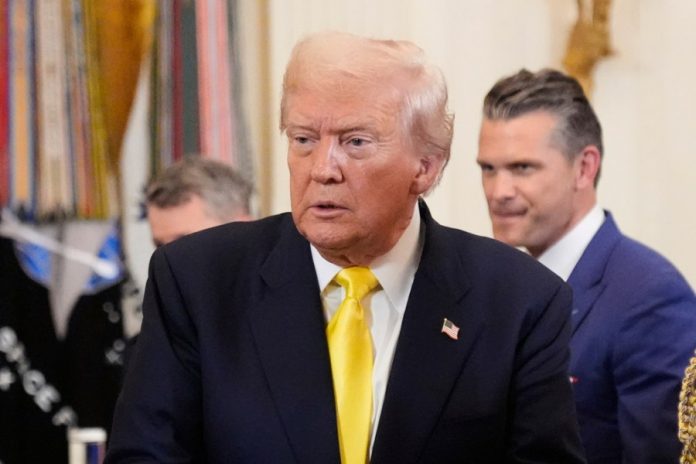
Disdain for Washington is the birthright of every American, indeed the entire English-speaking world.
In his two-volume travelogue, “North America,” English novelist Anthony Trollope described the still-incomplete city he found in 1861 “as melancholy and miserable a town as the mind of man can conceive.” He paints a picture of a transient, small city with neither robust commerce nor gracious society, and it didn’t get any better from there.
“So men ate, and drank, and laughed, waiting till chaos should come,” he wrote. “Secure in the belief that the atoms into which their world would resolve itself would connect themselves again in some other form without trouble on their part.” Mark Leibovich could lift that whole and use it in his next book.
Which all makes sense, because no city of any significant size would have ever sprung up on the marshy banks of the Potomac and Anacostia rivers. Denied a great harbor, like nearby Baltimore, in order to be built inland and sheltered from invasion — which didn’t even work — neither was Washington afforded a pleasant climate like the nearby foothills of the Blue Ridge.
But Washington, born of a compromise between Thomas Jefferson and Alexander Hamilton, wasn’t supposed to be a marvelous place to live and work. It was supposed to belong to no other region, a geographic leftover to which the unlovely work of government could be relegated. Like putting a power plant downriver from a city, Washington was supposed to do important, dirty work, not be beloved.
Add in the very American tendency to resent those with pretenses to authority, especially when they use that authority to take people’s money to spend poorly and devise rules that they do not follow themselves, and Washington was born to be disdained.
But there is no class of people in the world with a more robust contempt for Washington than New Yorkers, the city that had the capital when it was traded away in 1790. It is congenital for them.
Archetypal New Yorker Nora Ephron, who lived in Washington during her brief marriage to celebrity journalist Carl Bernstein, called it a city “where ideas went to die.” Indeed, there is a whole journalistic subgenre of New Yorkers dumping on Washington. Once, in a pool report about then-President-elect Barack Obama visiting The Washington Post in 2009, a New York Times reporter even got in a jab at “the nondescript soviet-style building at 15th and L.”
A fair swipe at a city the architecture of which juxtaposes neoclassical grandeur with what appears to be a collection of Hampton Inns with metal detectors.
New Yorkers particularly resent Washington’s pretensions. A twelfth the size of the Big Apple — smaller than flyover places like Oklahoma City and Indianapolis that would never dare to rival New York — where does Washington, some middling city full of bureaucrats, hack pols, nerds and sticky-faced middle schoolers gawking at lunar capsules, get off?
So, Donald Trump, a person who could have been produced by no city other than New York, is being very true to his roots as he declares a kind of summer-weight martial law for Washington.
Citing a statute that allows the president to nationalize the city’s police when “special conditions of an emergency nature exist,” Trump has taken command of the cops and called out the National Guard. The emergency, Trump says with a New Yorker’s gift for restraint, is “crime, bloodshed, bedlam and squalor and worse.”
There is less violent crime in Washington than when he started his first term eight years ago, but as presidents have learned too well, an emergency is in the eye of the declarer. Congress, which is actually responsible for D.C. according to the Constitution, will no doubt assert its rightful authority here and push back against this unprecedented overreach. Right after they get done stopping the emergency tariff powers, the emergency immigration powers, the emergency energy powers and the drug emergency powers.
No, we know that Washington is still Trollope’s Washington. But now, they don’t even eat, drink and laugh as they wait for the atoms of their world “to connect themselves again in some other form without trouble on their part.” It’s all joyless livestreams, lukewarm, protein-rich quinoa bowls and 6 a.m. cold plunges. There isn’t even any smoke in the smoke-filled rooms.
If Republicans love to hate Washington, though, the Democrats have the opposite problem: They hate to love it.
Dems have spent nearly 40 years committed to the cause of statehood for the District, a constitutional no-no that is still irresistible to them for the promise of three Electoral College votes, two new senators and another seat in the House that would all be blue in perpetuity.
The party line is that Washingtonians are some kind of American Gazans, denied self-governance by colonizers. But getting Americans to care so much about a place that is known as “Hollywood for ugly people” is a tough pull, especially when it’s a company town where the company never has a recession.
And so, Washington lives out its destiny as “someplace else,” a city whose character is defined by its transience — a place where all the most notable residents are from someplace else.
Chris Stirewalt is the politics editor for The Hill, veteran campaign and elections journalist and best-selling author of books about American political history.

